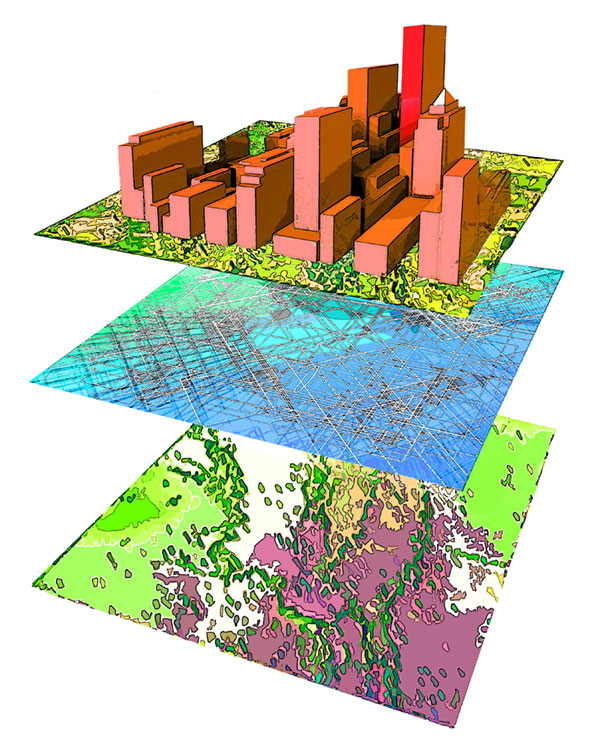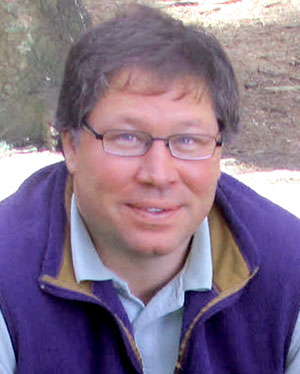November 9–10, 2017 at the National Humanities Center

Overview
Geospatial literacy is a term that describes the ways in which a person views, understands, and interacts with the world. The geoliterate individual has an understanding of the dynamic physical and cultural forces that interact across the world. He or she has a spatial awareness of the world and is able to see and understand patterns, distributions, and interactions of the physical and human realms.
As geospatial literacy and technology continue to advance the work of humanities scholarship and education, the National Humanities Center supports efforts to model and train teachers in the best approaches in the field.

This ConnectED Institute will focus on the integration and application of GIS tools for both teachers new to the field and those experienced with GIS technology. These grant-funded training sessions will provide select teachers and influencers with the opportunity to immerse themselves in the concepts of geoliteracy and explore new approaches to interdisciplinary projects in their classrooms. ArcGIS Online and Story Map accounts are available for free, and these workshops will give participants training in ways to embed these tools into their instruction to benefit student learning.
The National Humanities Center looks to support a geospatial approach to the humanities by providing explicit connections with teaching and learning and spatial humanities. This cohort of well-trained educators and education professionals in central North Carolina will lead a call to action for advocacy and continued training in all participating organizations and school districts.
Podcast
The use of geospatial technologies allows the interactions of place, space, time, and scale to be more obvious to teachers and students. Often there is an over-emphasis on the chronology of historical events without a strong consideration for their connections to geography. Geospatial technologies allow students to raise the critical ability to answer not only the important question of “where?” but also “why there?” With an emphasis on inquiry-based teaching and learning, Chris Bunin provides insights on the ways that GIS tools contribute to a deeper understanding of the humanities.
Participants
Structure
All sessions are held at the National Humanities Center in Research Triangle Park, NC from 8:30 am to 4:30 pm.
Beginner Session
This session is for humanities educators (history, world history, geography, civics, English and literature), library and media staff, and/or instructional coaches. Using the best practice approach of humanities education pedagogy, the session will feature clear pathways to integrate geospatial tools in the classroom. Extensive experience with digital mapping and spatial analytics technologies is not required, only a willingness to expand instructional strategies and approaches to integrate geoliteracy into storytelling and narrative.
Intermediate Session
This session is for humanities educators who already have a beginning knowledge of GIS technology. Applicants need to have a working knowledge of ArcGIS Online. Applicants should be able to create an ArcGIS map as well as complete the following: search for and add layers, create and format map notes, add point data using latitude/longitude and addresses, and save an online map as a simple Story Map app.
Instructors
Chris Bunin
 Bunin is a teacher of A.P. human geography, world history, and geospatial technologies at Albemarle High School in Charlottesville, Virginia. During the past decade he has collaborated on projects focused on leveraging geospatial technologies and geo-literacy in the classroom. These include “The Virginia Experiment” and “America on the World Stage” Teaching American History Projects; the iSTEM Teacher Scholars Program: An Applied Geospatial Curriculum for Middle Schools; “Transatlantic Teacher Scholars: Change Over Time and Place in the Meuse-Argonne American Cemetery”; Esri’s GeoInquiries for U.S. History and Human Geography; the U.S. Census Bureau’s Statistics in Schools Program; and the award winning book, Jamestown to Appomattox: Mapping U.S. History Using GIS (Carte Diem Press). He is also assistant professor of geography at Piedmont Virginia Community College and a member of the Virginia Geographic Alliance Steering Committee.
Bunin is a teacher of A.P. human geography, world history, and geospatial technologies at Albemarle High School in Charlottesville, Virginia. During the past decade he has collaborated on projects focused on leveraging geospatial technologies and geo-literacy in the classroom. These include “The Virginia Experiment” and “America on the World Stage” Teaching American History Projects; the iSTEM Teacher Scholars Program: An Applied Geospatial Curriculum for Middle Schools; “Transatlantic Teacher Scholars: Change Over Time and Place in the Meuse-Argonne American Cemetery”; Esri’s GeoInquiries for U.S. History and Human Geography; the U.S. Census Bureau’s Statistics in Schools Program; and the award winning book, Jamestown to Appomattox: Mapping U.S. History Using GIS (Carte Diem Press). He is also assistant professor of geography at Piedmont Virginia Community College and a member of the Virginia Geographic Alliance Steering Committee.
Andy Dojack
 Dojack currently teaches coding and software design at the Greene County Technical Education Center in Stanardsville, Virginia. In almost two decades in education he has taught special education, world geography, and digital mapping. Believing that student-facilitated modes of instruction are most beneficial to learning, he has focused intently on designing a classroom that is student-driven and student-centered. He has led or co-instructed numerous teacher-focused ArcGIS Online workshops in addition to serving as co-instructor for the online class Putting Social Studies in its Place. He has presented at numerous state conferences on the merits of including GIS in traditional humanities curricula.
Dojack currently teaches coding and software design at the Greene County Technical Education Center in Stanardsville, Virginia. In almost two decades in education he has taught special education, world geography, and digital mapping. Believing that student-facilitated modes of instruction are most beneficial to learning, he has focused intently on designing a classroom that is student-driven and student-centered. He has led or co-instructed numerous teacher-focused ArcGIS Online workshops in addition to serving as co-instructor for the online class Putting Social Studies in its Place. He has presented at numerous state conferences on the merits of including GIS in traditional humanities curricula.
Andy Mink
 Mink is vice president for education programs at the National Humanities Center in Durham, North Carolina. Previously he served as the executive director of LEARN NC at the University of North Carolina at Chapel Hill after working as director of outreach and education for the Virginia Center for Digital History and then the Curry School of Education at the University of Virginia. With all these organizations, he has designed and led professional development programs for K–12 and university educators that focus on hands-on instructional models. In 2002, Andy was named the National Experiential Educator of the Year by the National Society of Experiential Education. He is a Master Teacher with the Organization of American Historians in their Distinguished Speaker Program and also serves on the executive board of the National Council for Social Studies and the board of trustees for the National Council for History Education. He was awarded the 2015 Outstanding Support for Geography Education Award by National Council for Geographic Education, and he serves as a GeoMentor with the Association of American Geographers.
Mink is vice president for education programs at the National Humanities Center in Durham, North Carolina. Previously he served as the executive director of LEARN NC at the University of North Carolina at Chapel Hill after working as director of outreach and education for the Virginia Center for Digital History and then the Curry School of Education at the University of Virginia. With all these organizations, he has designed and led professional development programs for K–12 and university educators that focus on hands-on instructional models. In 2002, Andy was named the National Experiential Educator of the Year by the National Society of Experiential Education. He is a Master Teacher with the Organization of American Historians in their Distinguished Speaker Program and also serves on the executive board of the National Council for Social Studies and the board of trustees for the National Council for History Education. He was awarded the 2015 Outstanding Support for Geography Education Award by National Council for Geographic Education, and he serves as a GeoMentor with the Association of American Geographers.
Application
Email completed application and CV to edadmin@nationalhumanitiescenter.org. Please title the subject of your email “GIS Applicant LastName”. The attached application should be titled “LastName Application Form” and your CV “LastName CV”.